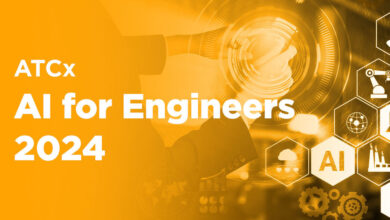AI in Project Management Market to Reach US$5 Billion by 2028

AI in Project Management Market Prediction: AI in Project Management market has changed dramatically implying considerable growth. The AI in Project Management market size was valued at US$2.45 billion in revenue in 2023 and is anticipated to reach US$5.41 billion by 2028, with a CAGR of 17.23% over the forecast period. This growth is fueled by AI technology applications, which are transforming conventional project management strategies. Automation of non-essential actions, better data processing, wise decision-making, and reference processing and management will eventually scale operations in different industries by boosting output.
Driving Factors:
The factors driving AI in project management market growth are varied and serve unique purposes in the ability to enhance project efficiency, decision-making, and overall success. The driving factors are as follows:
Automation and Efficiency
AI can take over essential workstreams such as scheduling, task assignment, progress tracking, and more. With these routine tasks operating on autopilot, project managers are free to invest more time in higher-level thinking and strategic planning. In turn, it is possible to spend more time with stakeholders and to plan exciting innovations, boosting efficiency and productivity. Notably, automation ensures a more predictable and smooth project experience as human error is reduced.
Data Analysis and Insights
Another ability of AI that plays to this strength is the analysis of data in a short period and offering accurate predictions when handling vast amounts of incorporated data. In project management, this is ideal because at every step of a project, the information from various feeds is collected, and a decision has to be made based on them. As such, AI tools can utilize historical data, including current metrics, if any, and other external factors, and generate the best possible recommendation. With these facts, project managers can make smart choices, forecast the result of any decision, and change strategies when necessary. This boosts the quality of project management.
Intelligent Assistance and Decision Support
AI offers real-time support and high-end decision support. AI-powered analytics produce contractor project information in real time, allowing the project manager to receive instant feedback on how their project is performing and where they’re likely to encounter issues. Since they are typically capable of determining the best course of action, the program will offer real-time match quoting. Consequently, project managers may make rapid and accurate real-time choices regarding vital project information.
Predictive Planning and Resource Management
Predictive planning and resource management AI’s ability to predict future requirements also enables a project manager to forecast and plan for eventualities. AI uses patterns and historic data to calculate project traffic, waste of resources, and timescale slippage. Project managers can efficiently plan and allocate all resources on anticipating possible scenarios. The predictive planning approach helps maintain schedules of projects, reduce costs, and increase the success level of projects.
Risk Management and Issue Resolution
Risk management and issue identification are almost automated with AI, which measures the levels of worries and patterns early to warn the project manager before it is out of control. AI plays a significant role in risk management and issue handling, and artificial intelligence otherwise stalls progress. Other benefits of AI include alternative strategies, ensuring that projects continue and that there are contingency plans in place if a key element fails. This ensures that there is a reduced chance of a project failing from the start.
Collaboration and Communication
Artificial Intelligence improves team collaboration and coordination by offering sophisticated tools that promote real-time communication. For instance, AI’s platforms may create communication infrastructure, sharing of documents space without facilitating integrated workspaces and overall seamless integration. The level of assistance ensures that all team members remain reliant on one shared resource, reducing confusion to increase efficiency. Moreover, collaboration ultimately reduces the time for each phase of the endeavor, leading to ultimate eventfulness.
Industry-Specific Adoption
As different industries have their requirements and needs, AI can be developed tailored to each of them. For example, AI can assist in schedule construction projects and allocate resources and count the necessary materials, or AI can help developers review the code they created or identify bugs. Therefore, these tools contribute to a solution to the needs of each of the spheres and raise their popularity in the relevant sector. Then, it becomes an increasing trend as an increasing number of sectors notice AI and its potential in solving specifically their issues.
Advancements in AI Technologies
Furthermore, the progress of AI technologies, including machine learning and natural language processing, and predictive analytics, also influences market development. New developments make AI tools more powerful, varied, and affordable, persuading more organizations to invest in AI-backed project management systems. As underlying technologies continue to improve, the use of AI in a project and portfolio management context will also broaden in the near future. Thus, it is anticipated that the market will continue to demonstrate growth.
Agile Methodologies Support
AI support agile project management methodologies by enabling real-time analytics, automated tracking, and adaptive planning. Agile is intended to be flexible, rapidly iterated upon, and consistently improved, all while supported by AI tools. AI can track the sprints progress automatically, analyzes the team’s performance, and adjusts the plans as issues arise. This makes it easy for the project team to follow agile principles and become better in performance.
Increased Requirement for Boosting Project Success Rates
Additionally, the need to boost project success rate is driving AI adoption in the field. AI is becoming prominent in the field as the recent trend to integrate enterprise-wide centralized systems continues. A continued emphasis by organizations to have their projects delivered within timeline, budgetary, and quality standards has increased their reliance on AI. AI systems reduce bottlenecks and risks while offering guidance to teams on the possible lapses when a project is ongoing. The specific need permeates the general drive for digitalization where firms are optimizing operations through technology.
Market Restraints:
Some of the hurdles that the AI in Project Management Market is likely to face are as follow:
Lack of AI Skills and Expertise
AI-powered project management solutions are hard to develop, implement and manage. Organizations struggle to hire specialists as there is a serious shortage of knowledgeable professionals. 52% of surveyed respondents from organizations with AI intentions said they were not trained in AI at all. The gap in skills and expertise is the biggest obstacle for bringing AI in project management closer apart from difficulty of implementation.
Data Quality and Availability
AI highly relies on the quality and availability of the data to produce effective performances. In project management, AI will only provide insights and support successful decision-making where it has quality and comprehensive data. Compromised or limited data will lead to poor predictions, incorrect insights, and unsuccessful decision-making. The fact that organizations have continued to struggle with data collection, cleaning, and maintenance indicates that although these tools are highly required in project management, these tools have limitations. Thus, this remains a drawback that will continue to weaken their implementation within projects.
Regulatory and Compliance Challenges
Some verticals, such as healthcare and finance, follow strong regulatory compliance. For example, these verticals have high requirements for data privacy, security, and governance. Due to such implications, AI integration for projects implemented within these sectors will require additional compliance developments. Developing an AI model in compliance with laws and regulations is challenging and demands significant resources. This challenge can present a barrier for the organizations working in regulated verticals, restricting the use of AI-powered solutions.
Resistance to Change
Adopting new technologies often encounters resistance from organizations and individuals. This resistance can stem from concerns about job displacement, fear of the unknown, or reluctance to change established processes. A survey found that 51% of respondents chose ‘Maybe’ when asked about seeking roles outside the company as an alternative to proposing new innovative projects. Such resistance to change can slow down the adoption of AI tools in project management, as organizations may be hesitant to invest in technologies that their employees are not ready to embrace.
Ethical Concerns
The deployment of AI in project management raises several ethical concerns, including bias in decision-making, transparency, and accountability. AI systems can inadvertently perpetuate biases present in the data they are trained on, leading to unfair or discriminatory outcomes. Additionally, the opaque nature of some AI algorithms can make it challenging to understand and justify their decisions. Addressing these ethical concerns is crucial for building trust and acceptance of AI technologies. Failure to do so can result in skepticism and resistance from stakeholders, hindering the widespread adoption of AI in project management.
Integration with Existing Systems
Integrating AI-powered project management tools with existing systems and processes can be a significant challenge. Many organizations have established systems and workflows that are deeply ingrained in their operations. Seamlessly integrating new AI tools into these existing infrastructures often requires substantial time, effort, and resources. This integration process can be complex, involving technical adjustments, data migration, and changes in workflows. The difficulty and cost associated with integration can deter organizations from adopting AI solutions, thereby restraining market growth.
Cybersecurity Risks
The increased use of AI in project management introduces new cybersecurity risks. AI systems can be targeted by cyberattacks aimed at compromising sensitive project data, manipulating AI algorithms, or disrupting project management processes. Data breaches and malicious attacks can have severe consequences, including financial losses, reputational damage, and legal liabilities. Ensuring robust cybersecurity measures for AI systems is essential to protect against these risks. However, the potential vulnerabilities and the cost of implementing adequate security measures can pose significant challenges for organizations, limiting the adoption of AI in project management.
The future of AI in Project Management market is poised for substantial growth, driven by the transformative potential of AI to enhance efficiency, decision-making, and project success rates. Automation, data analysis, intelligent assistance, predictive planning, risk management, and improved collaboration are among the key factors propelling this expansion. However, the market must navigate challenges such as the lack of AI skills, data quality issues, regulatory hurdles, resistance to change, ethical concerns, integration difficulties, and cybersecurity risks. Addressing these challenges will be crucial for sustaining the market’s growth trajectory and fully realizing the benefits of AI in project management. As organizations continue to invest in AI technologies and overcome these obstacles, the future of AI in project management looks promising, offering new opportunities for innovation and efficiency across various industries.
FAQs
1. Will AI take over project management?
AI will not completely take over project management, but it will significantly transform the field by automating repetitive tasks, providing real-time insights, and optimizing resource allocation.
2. How is AI used in project management?
AI in project management is utilized for data analysis, risk management, and communication, providing deeper insights, efficient collaboration, and automation of administrative tasks.
3. What is the future of artificial intelligence in project management?
The future of artificial intelligence in project management involves major shifts, with AI improving project selection, monitoring progress, speeding up reporting, and facilitating testing by 2028.
4. What is an example of AI in project management?
AI in project management can be used for automated note-taking during meetings, generating meeting agendas and summaries, and creating meeting transcripts.
5. How to leverage AI in project management?
To leverage AI in project management, focus on automating repetitive tasks, enhancing data analysis and insights, and optimizing resource allocation. AI can also improve communication, provide personalized insights, and enable continuous monitoring to drive project success.



